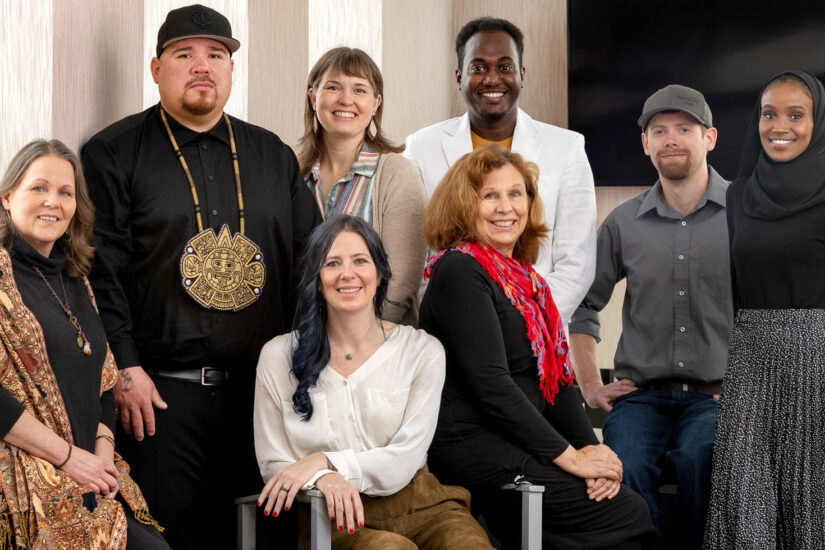
A Major Initiative
Meet the 2022-23 Initiators Fellows—Seven emerging social entrepreneurs with big ideas for improving their communities
By Laura Billings Coleman and Lisa Meyers McClintick
With more than 80 applicants and ideas drawn from 53 counties and six Native Nations, winnowing the pool of Initiators Fellowship candidates every two years to a shortlist of finalists is hard work that gives Chris Fastner great hope for the future of Greater Minnesota.
“Too often people assume that great innovation and good ideas can only live in urban areas, but from what we’ve seen, that’s simply not the case,” said Fastner, who manages the Fellowship program for the Initiative Foundation and its Minnesota Initiative Foundation partners. “There are so many people in small towns across Greater Minnesota who are amazing innovators, doing purpose-driven work and who are really committed to the betterment of their community.”
Since 2016, the Initiative Foundation and its partners have relied on a selective process to pick the most promising social entrepreneurs in the region for an immersive leadership development experience. The program provides each Fellow with a $60,000 stipend over two years and combines that investment with mentor support, peer-to-peer learning opportunities, business start-up expertise and technical assistance to help give life to big ideas that can transform Greater Minnesota. While the program is still in its early years, the goal is to build a network of next-generation leaders equipped with the skills, connections and confidence to take on some of the toughest challenges facing the area.
“When I talk about the kind of social entrepreneurs we’re looking for, I sometimes borrow a phrase from ecology,” Fastner said. “Keystone species are those that have a disproportionate impact on the rest of the landscape. So in my mind, we’re looking for keystone leaders—individuals who, because of their energy, their passion or their unique perspectives, are poised to have an outsized impact on their communities.”
The seven Initiators Fellows chosen for the program’s third cohort reflect a rich diversity of backgrounds, lived experiences and ideas across Greater Minnesota, with two emerging social entrepreneurs selected from each of four regions served by the participating Minnesota Initiative Foundation organizations: the Initiative Foundation, Northwest Minnesota Foundation, Southwest Initiative Foundation and West Central Initiative. From using food waste to create more environmentally-friendly fertilizer, saving struggling rural grocery stores, and making homeownership a reality for more of Minnesota’s immigrant families, the latest crop of Fellows is focused on solving problems they’ve seen up close.
While some of the Fellows are newcomers to their communities, and others have been here a while, Fastner said, what they all share is a commitment to making a greater Minnesota. “Being rooted in your community can be a big motivator because we all want to see small towns succeed.”
Fardowsa Iman, St. Cloud, Initiative Foundation Region
Addiction treatment shaped by culture
Iman focuses on recovery through faith, community lens
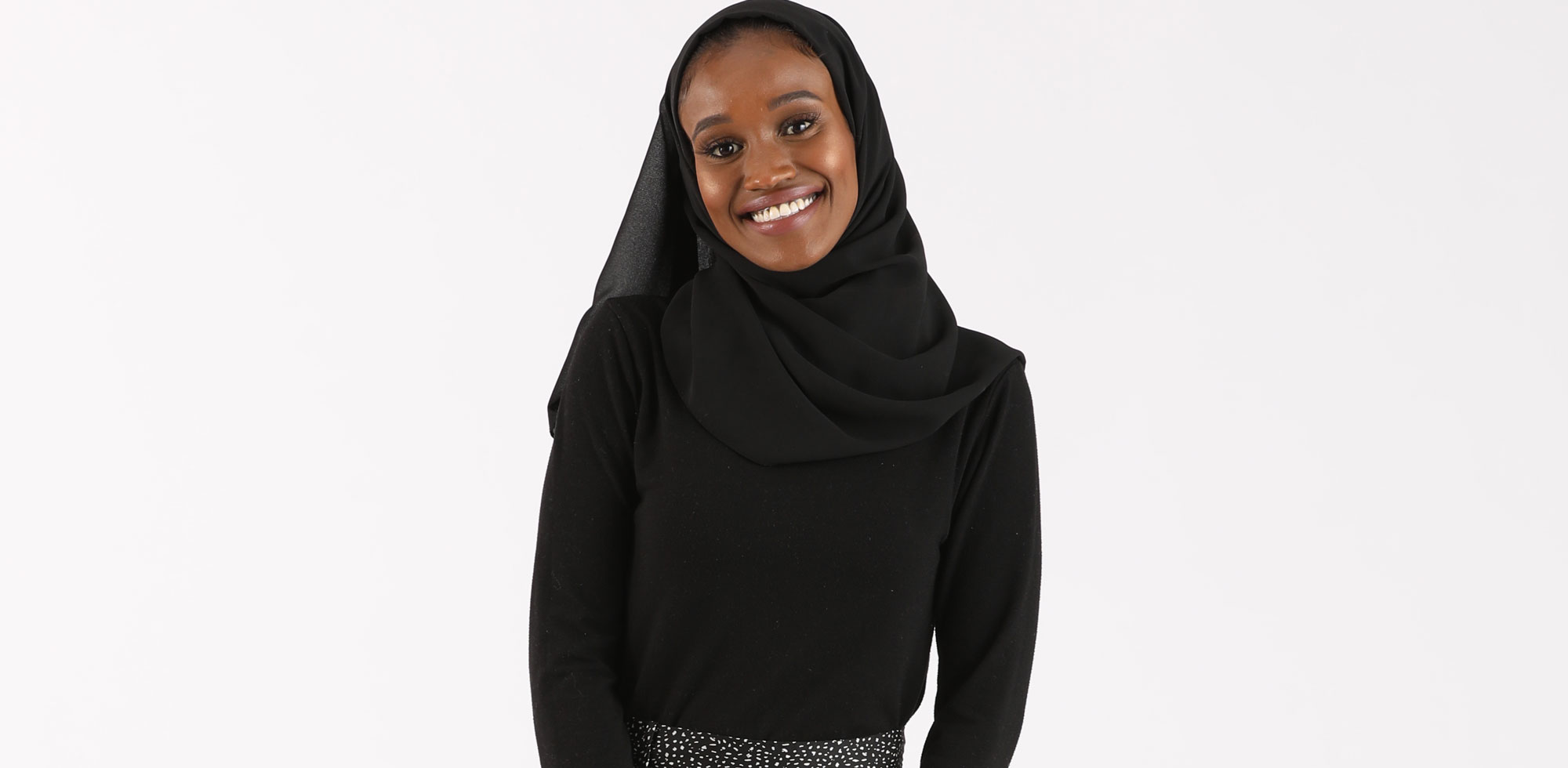
With a troubling spike in opioid-related overdose deaths in recent years, no community in Minnesota has been immune from the crisis—including St. Cloud’s close-knit Somali and East African community. “
Addiction has always been in our community, but it was hidden very well,” said Fardowsa Iman, a licensed alcohol and drug counselor in St. Cloud. “But over the last two years, there’s been an explosion of kids overdosing, and there’s no longer a way to shove it under the rug.”
That’s why Iman intends to use her Initiators Fellowship to create a chemical dependency recovery clinic designed to serve the specific cultural needs of the region’s Somali immigrant community.
Born in Uganda and raised in St. Cloud from the age of 8, Iman is a third-culture kid who can see why the traditional treatment paths might not be working for first-generation Somali Americans.
“I wanted to become an addiction counselor because, when I was in college, I realized that when kids I was growing up with were having addiction problems, their parents were sending them back home to Africa, which was even more traumatizing because those kids grew up here,” Iman said. “And when they’d come back, the problem was still there.”
As the Somali community that first settled in Central Minnesota in the early 2000s now begins a third decade in the region, it’s time to have culturally competent services to help new Americans get the help they need. Iman saw the need and offered up a solution.
While the state has prided itself on the Minnesota Model of recovery, which focused on peer-to-peer, psychological support for people trying to overcome addiction, Iman believes it’s time for evidence-based recovery models to make more room for diverse cultural perspectives. For instance, Iman wants to include Muslim teachings and practices to promote mental health.
“In my classes, I would sometimes hear my peers make recommendations that I know would be damaging to someone from my culture,” she said. “For instance, telling a patient to cut off relations with family members who aren’t good for you. How does that help them become sober?” Explaining the differences between Somali and American cultures can also be counter-productive for patients. “Feeling like you have to explain your culture all the time makes it hard to establish a connection to a counselor,” she said. “Having a counselor who understands those nuances is important.”
With a 2017 degree in chemical dependency and community psychology from St. Cloud State University, Iman is eager to learn how to build a sustainable business through the mentoring she’ll receive as part of the Initiators Fellowship.
“I tend to stay in my own little bubble sometimes, but I was so energized by meeting the other finalists and hearing what they want to do,” she said. “I know nothing about the business side of things, so this will help me to become more of the leader I want to be in my community.”
Helping to remove the shame and stigma that’s often attached to addiction and mental health challenges is work she feels called to do. “The more people see someone like me talking about the effectiveness of treatment or mental health help of any kind, the more the older generation will grasp it and understand that it’s really OK to get help,” she said. “My generation knows that my community needs it.”
Nora Hertel, St. Michael, Initiative Foundation Region
Hertel retools a sustainable news model
Digital, nonprofit approach could fill outstate news gaps
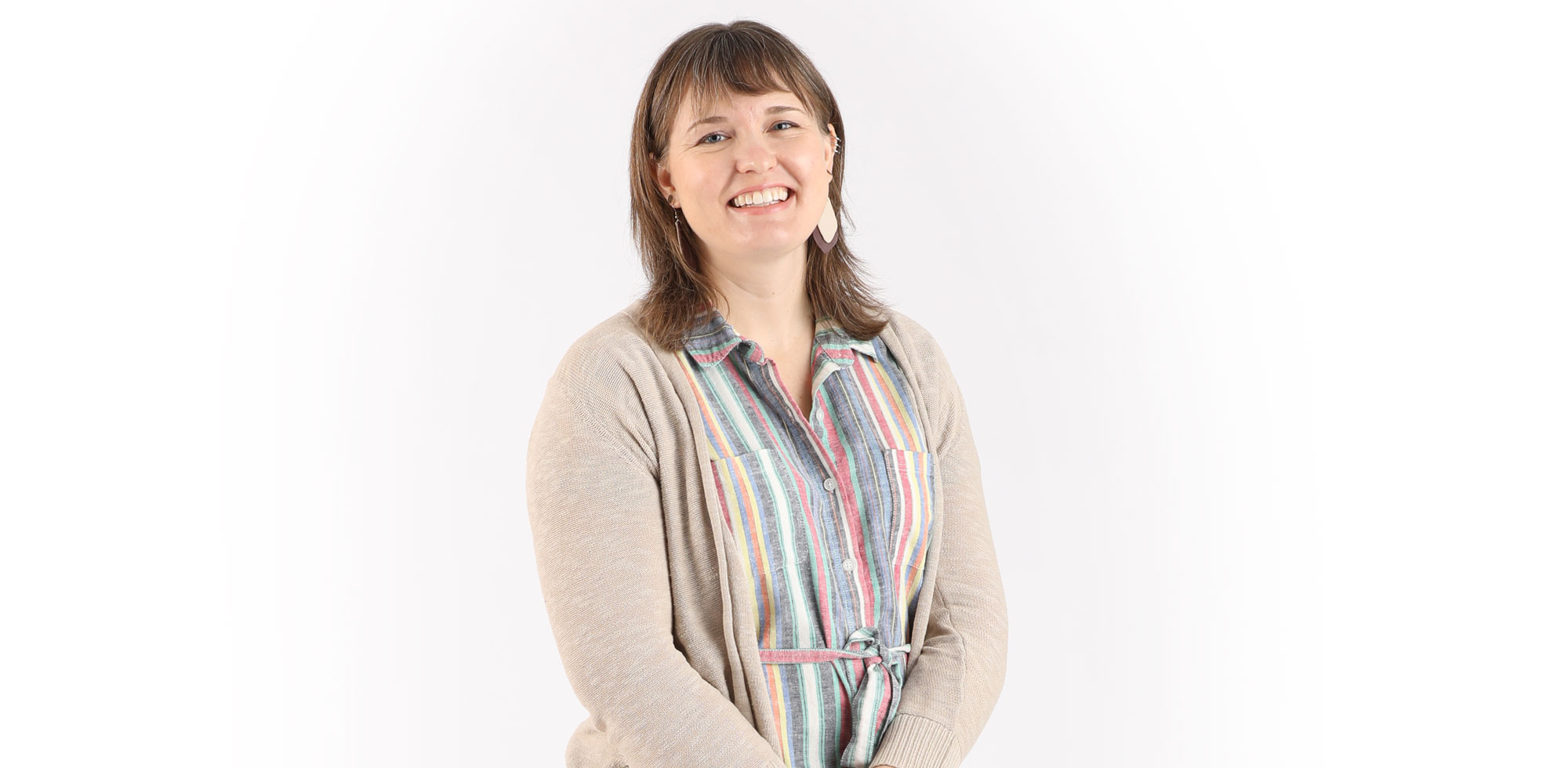
For more than a decade, journalist Nora Hertel worked in newsrooms where she saw first-hand the positive effect of well-told stories and the importance of expertly explored issues.
She’s also seen a shrinking number of rural news outlets, dwindling advertisers, less in-depth reporting, and ever-fewer reporters who are expected to keep pace but burn out in the process.
“The news landscape is changing,” said Hertel, who survived multiple layoffs while at daily newspapers in Wausau, Wis., and St. Cloud. As businesses appeal directly to customers and turn to social platforms for advertising, the breaking news reaches people as fast as a finger can hit send. As a result, the for-profit, advertising-based publishing model continues to erode.
Minnesota has lost 17 percent of its newspapers since 2003, according to the University of North Carolina’s Hussman School of Journalism and Media.
“It has been painful to see traditional news outlets lose staff and reduce community coverage,” she said. “But I see an opportunity.”
Hertel, based in St. Michael, will use her two-year Fellowship to build The Optimist, a Minnesota digital news publication with a nonprofit structure. Her inspiration stems from Madison Commons and The Wisconsin Center of Investigative Journalism, publications she wrote for while pursuing a graduate degree in journalism from the University of Wisconsin-Madison 10 years ago.
“They’re both digital-focused nonprofits that are public-service-based,” she said. Minnesota Public Radio, MinnPost and Sahan Journal in the Twin Cities also have nonprofit news models.
Hertel also wants to pursue a new trend called solutions journalism. It requires rigorous evidence-based research to dive more deeply into community issues by explaining what’s at stake, how people are working to solve the problems, and their outcomes so far.
There are a handful of topics Hertel and a growing stable of writers hope to tackle. The topics include the need to build more sustainably to reduce emissions that impact climate change, ways to combat the high rates of suicide among veterans, how to offer more support to community caregivers, and protecting natural resources such as peat bogs.
“I really want these stories to inspire people to look at problems in a new way and try to tackle problems that seem intractable,” she said. “I want journalism to help us come together and solve problems.”
Besides addressing larger issues in Central Minnesota and eventually expanding into Greater Minnesota, she hopes to re-establish residents’ trust in journalism and re-engage those who’ve felt burned out by negative news.
Nonprofit digital news models are popping up across the country, according to a January 2022 feature in the Washington Post, and more than 70 local newsrooms have launched nationally to fill the need for accurate information during the pandemic, according to the Poynter Institute for Media Studies.
Hertel knows she has much to figure out during her time as an Initiators Fellow, from the best way to deliver stories to how to find sponsors and build an audience. Fortunately, she said the ease of a digital format allows her to launch and evolve as she builds financial support and readership.
“I want to be part of that wave,” she said. “And create a new kind of newsroom that responds to reader problems in Greater Minnesota and works to unite our communities in divisive times.”
Brenna Rollie, Fosston, Northwest Minnesota Foundation Region
A cleansing approach to mindfulness and wellness
Rollie stretches vision to bring healing to community
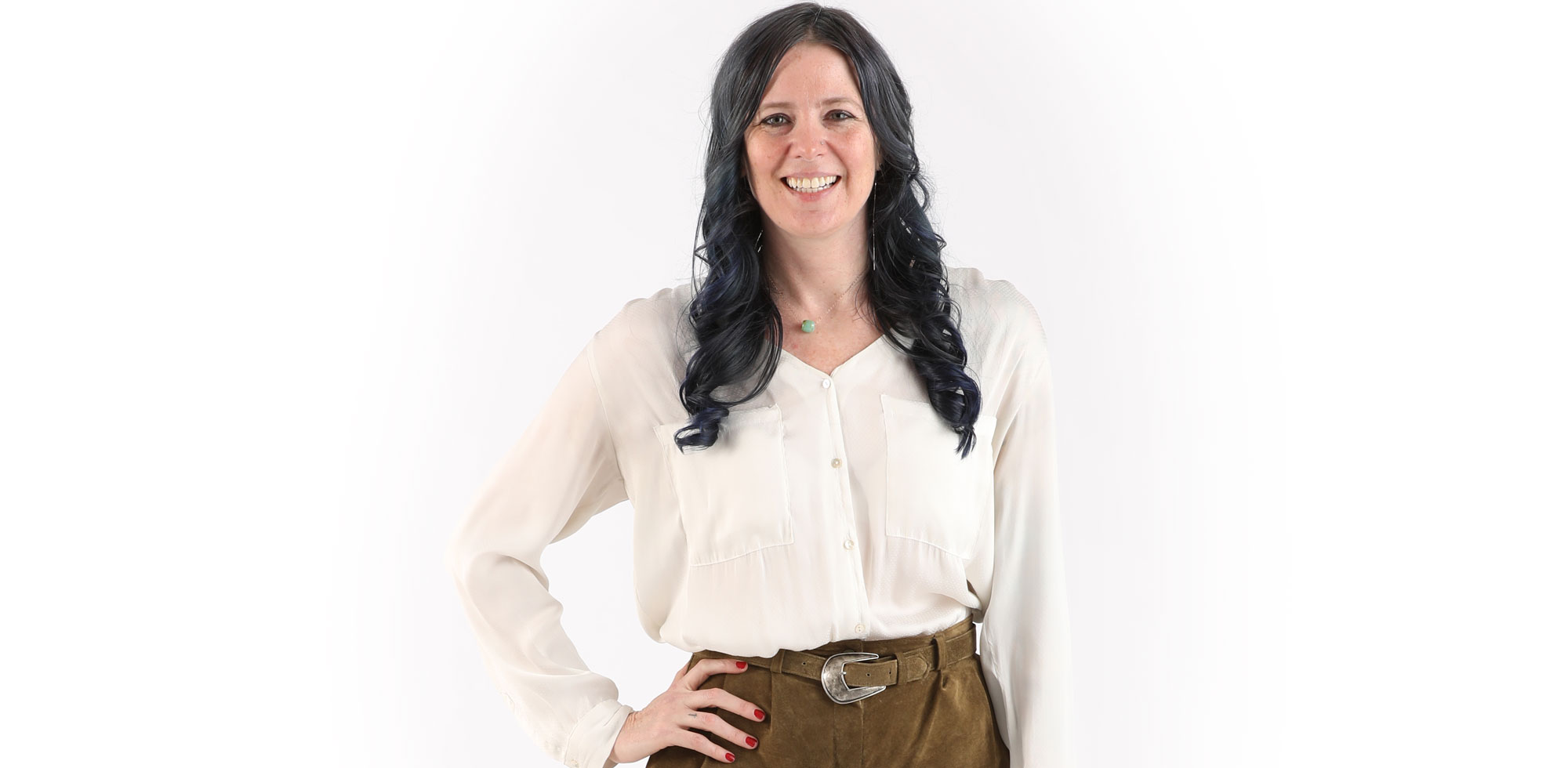
Brenna Rollie believes it’s time for her friends and neighbors to take a deep, cleansing breath.
As a certified yoga instructor with more than 500 hours of advanced training, Rollie knows the value of connecting mind, body and breath to help manage stress, shift perspective and support mental health. As a Fellow, her goal is to build on that knowledge to become a health and wellness leader in Fosston. She wants to bring the benefits of mindfulness and conscious movement to a community that, like many in rural Minnesota, has been hit hard by the pandemic.
From job losses and loneliness to school closures and the lost connections to the everyday interactions that foster a sense of belonging and wellbeing, Rollie said, “there’s just so much emotion attached to all that we’ve been through the last two years, and living through this kind of uncertainty [takes a toll] in ways we don’t always know how to manage or to talk about.”
A recent community needs assessment conducted by Essentia Health found wait times to see a mental health care provider in the area now typically last a month or longer, with rising demand for mental health care now seen in emergency rooms. Meanwhile, nearly two-thirds of high school students in the Fosston/Bagley area recently self-reported feeling hopeless or depressed in the last week. “There’s a lot of fear and grief and sadness that we need to understand and move through rather than repress,” said Rollie, a member of the Healthier Fosston workgroup, which has been studying these trends.
A veteran instructor who moved to Fosston in 2019, Rollie did what many in her field did when the pandemic hit. She transitioned her small business, Aham Love Yoga, to online classes. But, as she’s gone deeper into her practice and developed curricula to train other yoga teachers, she began to wonder whether her work could do more. Could her work help prevent mental health problems in her community before they become a crisis or heal trauma in communities coping with addiction and domestic abuse?
Rollie said being chosen as a Fellow in the Initiators Fellowship helped push her to think more broadly about making her community better and to come up with a business plan she hopes will include a training curriculum that could be used in area schools, corporate retreats, to help pandemic-affected police and first responders, and a camp for youth recovering from trauma. “I’ve always taught classes as a way to bring in money, and I never really had the ability to think about what this could look like long-term if I had the opportunity to build,” Rollie says. “This has given me the confidence to start thinking bigger about ways that this work could start healing communities.”
Daniel Barrientez, Bemidji, Northwest Minnesota Foundation Region
Inviting felons to the community table
Barrientez focuses on food, skill-building for formerly incarcerated people
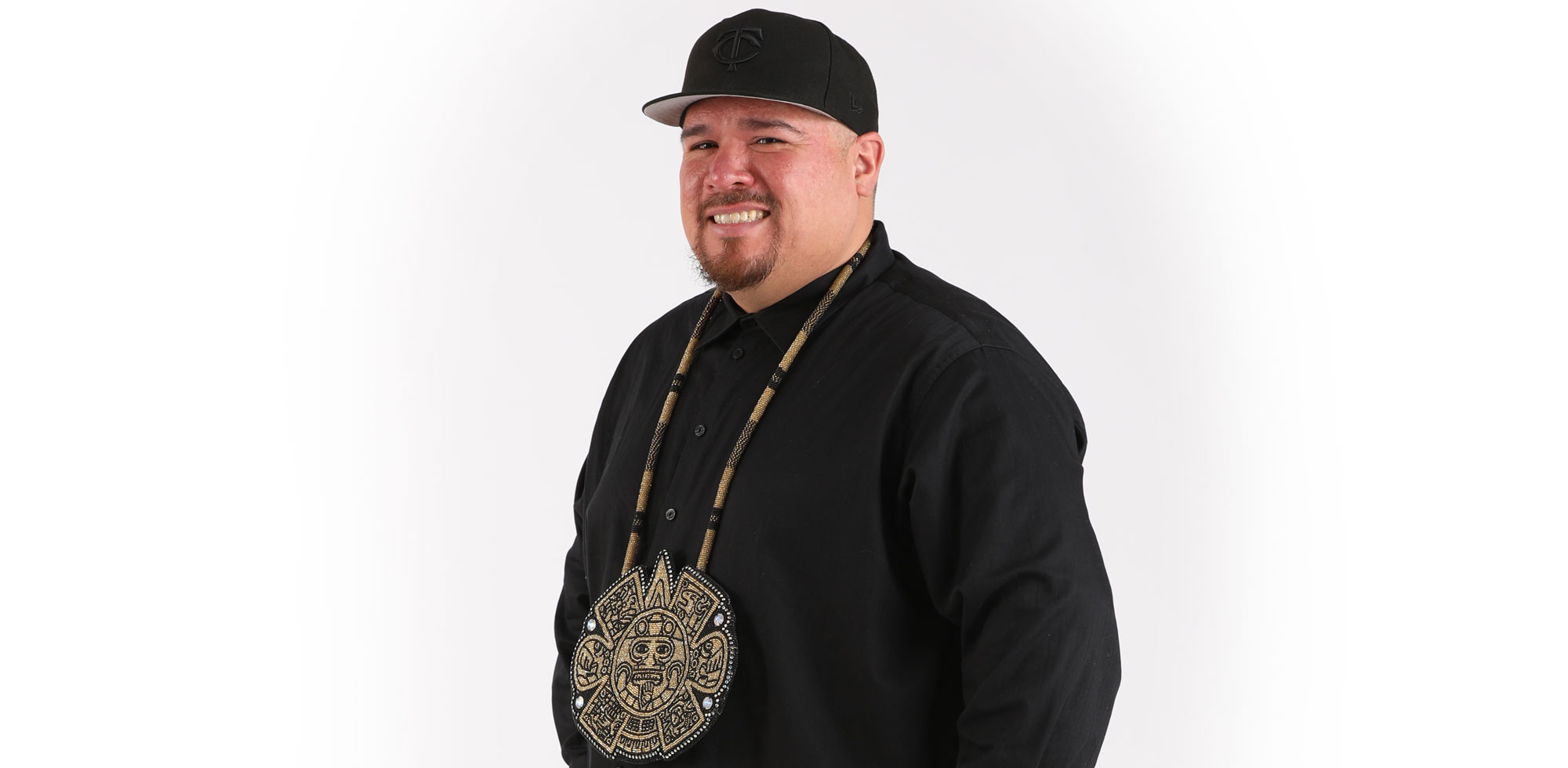
During the height of the pandemic, Daniel Barrientez lost his job and then his apartment. Moving from Minneapolis to Bemidji to be closer to his in-laws, he hoped his prison record wouldn’t be another obstacle to making a fresh start.
“I was incarcerated for five years and got out in 2010, but it’s always been a struggle to find work,” said Barrientez, who thought the region’s low unemployment and high workforce demand would make it simpler to get hired. “Instead, when I’d get called for an interview, pretty much the whole conversation turns into being incarcerated, what did you do, asking about your tattoos, and all that, but nothing about the skills I have or the work I can do. It gets so demoralizing you can see why some guys would just rather go back to prison.”
Barrientez was able to find joy in the kitchen, using cooking skills he first learned from his grandmother and later from the culinary arts training he received at the Minneapolis Community and Technical College, where he enrolled after his release. “I was always hungry when I was incarcerated. All I thought about was food and cooking,” he said. “So even though the inspiration came out of a dark place, it turned into something good for me.”
While getting support at the Northwest Indian Community Development Center (NWIDC), Barrientez mentioned his dream of owning a food truck that would serve his famous tacos while providing a path to full employment for other previously incarcerated men and women. A staff member there encouraged him to share the plan in an application for the Initiators Fellowship, convincing him he had all the right ingredients to be a social entrepreneur.
“Nobody doesn’t like my tacos,” says Barrientez, whose family nickname “Sunny” is the inspiration for the food truck he hopes to name “Uncle Sun’s Tacos.” While he’s created a business plan for a simple menu with low overhead and fast delivery, Barrientez said, “I’m even more excited about helping people like me, struggling to find jobs, struggling to reenter.”
With the help of the Fellowship, he hopes to partner with NWICDC to provide food service and professional kitchen training for people who have recently been released from prison and a steady supply of volunteer cooks for their community table program. “After they get cooking, the idea would be to get them jobs in town,” he said. “I want to get that taboo out that just because they had a criminal run-in they’re no longer members of society.”
Since word of Barrientez’s Initiators Fellowship has gotten out, he’s earned a few catering gigs, recently wowing the staff of the Northwest Minnesota Foundation with his wares at a recent gathering and getting encouragement from restaurant owners in the area. He and his wife also found a contract-for-deed house where they’re happy to be putting down roots. “I went from being homeless to being a homeowner—I can hardly believe it,” Barrientez said. “I guess the lesson is that you can never give up.”
Kris Shelstad, Madison, Southwest Initiative Foundation Region
Shelstad creates more than a mercantile in Madison
Returning resident plans a community gathering place
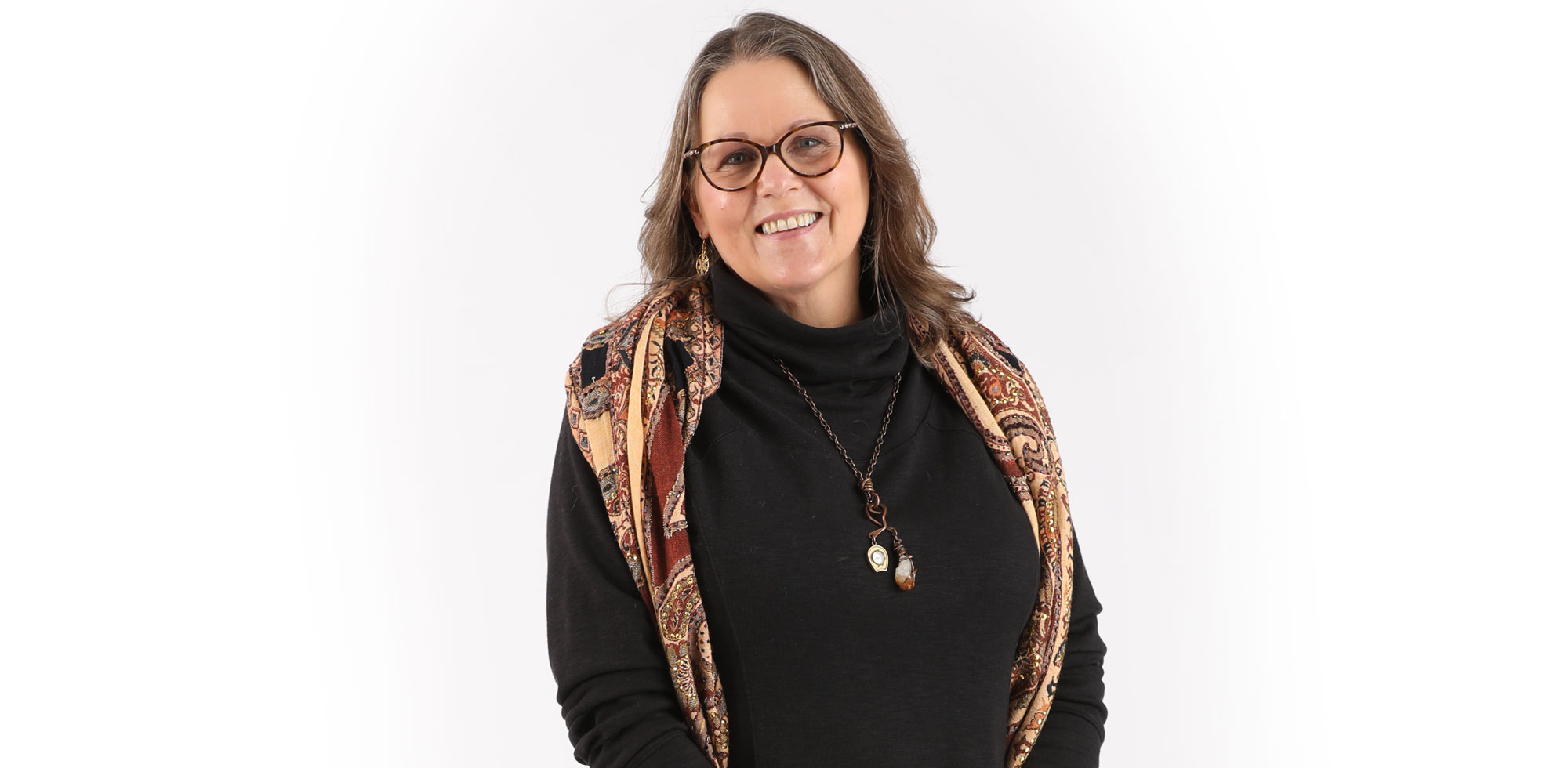
When Kris Shelstad hands over a steaming cup of coffee in her Madison Mercantile Café, her mission reaches far beyond a shot of caffeine and comfort on a Minnesota morning.
She’s looking to connect, gather ideas, and open conversations between residents. During her two-year Initiators Fellowship, she’ll be looking for the best ways to create a viable, creative, multi-use space where people from the town of 1,500 residents can come together.
The yearning to open a coffee shop—something her mother once had along Main Street in Madison—led Shelstad to purchase a 15,000-square-foot former hardware store last year. It was more space than she needed but enough to safely bring together residents who have been isolated by both the pandemic and a lack of places spacious enough for social distancing.
“That was a surprise to me—how many groups needed it as a meeting place,” Shelstad said. Unfortunately, like other small towns with consolidated school districts, there isn’t a high school in town that offers a hub for activities and events.
Add to this another pandemic effect: formerly urban families who have opted for the safety and affordability of small-town life now that they can work virtually. They may want office space, reliable wireless signals, good coffee and an energizing dose of culture through arts and events.
Shelstad knew she craved those amenities after living near Austin, Texas, where she and her husband had retired after military careers. When he passed away unexpectedly in 2018, she returned to Minnesota and her hometown. She has a sister, nieces and nephews in Madison and a brother only 10 miles away.
After 31 years with the National Guard—21 of those on active duty in the United States and abroad—Shelstad knows how to break down big projects and get things done. She buzzes with ideas but wisely follows the advice of a friend who said, “Just listen to the community, and they’ll reveal what they need.”
What’s risen to the top has been a larger room that can be a conference room and a good floor for dance practice and yoga. In addition, she envisions small studios that can be rented by artists, photographers or musicians, or used for small meetings. She also wants the walls to exhibit local art and for there to be a small stage for music and other performances.
Another area has been pegged for a workshop modeled after The Men’s Shed, an international organization that recognizes men—especially older retirees—will better connect while shoulder-to-shoulder working on a project.
“I couldn’t find any template for doing this,” Shelstad said of her mercantile space and all its possibilities. The challenge is to figure out enough for-profit operations to pay for remodeling, plumbing upgrades and ongoing expenses.
Community encouragement has helped her keep the project moving forward with the coffee shop, a stage and art gallery to open in early 2022 after a six-month effort.
“I think one of the things that surprised me the most is that I’m not panicking,” she said. “I wake up and think, ‘What are we going to do today?’ People want this to happen. The town is really behind it.”
Noreen Thomas, Moorhead, West Central Initiative Region
Thomas focuses on food waste solutions
Moorhead biodigester project could divert materials from landfills and fill farm fertilizer needs
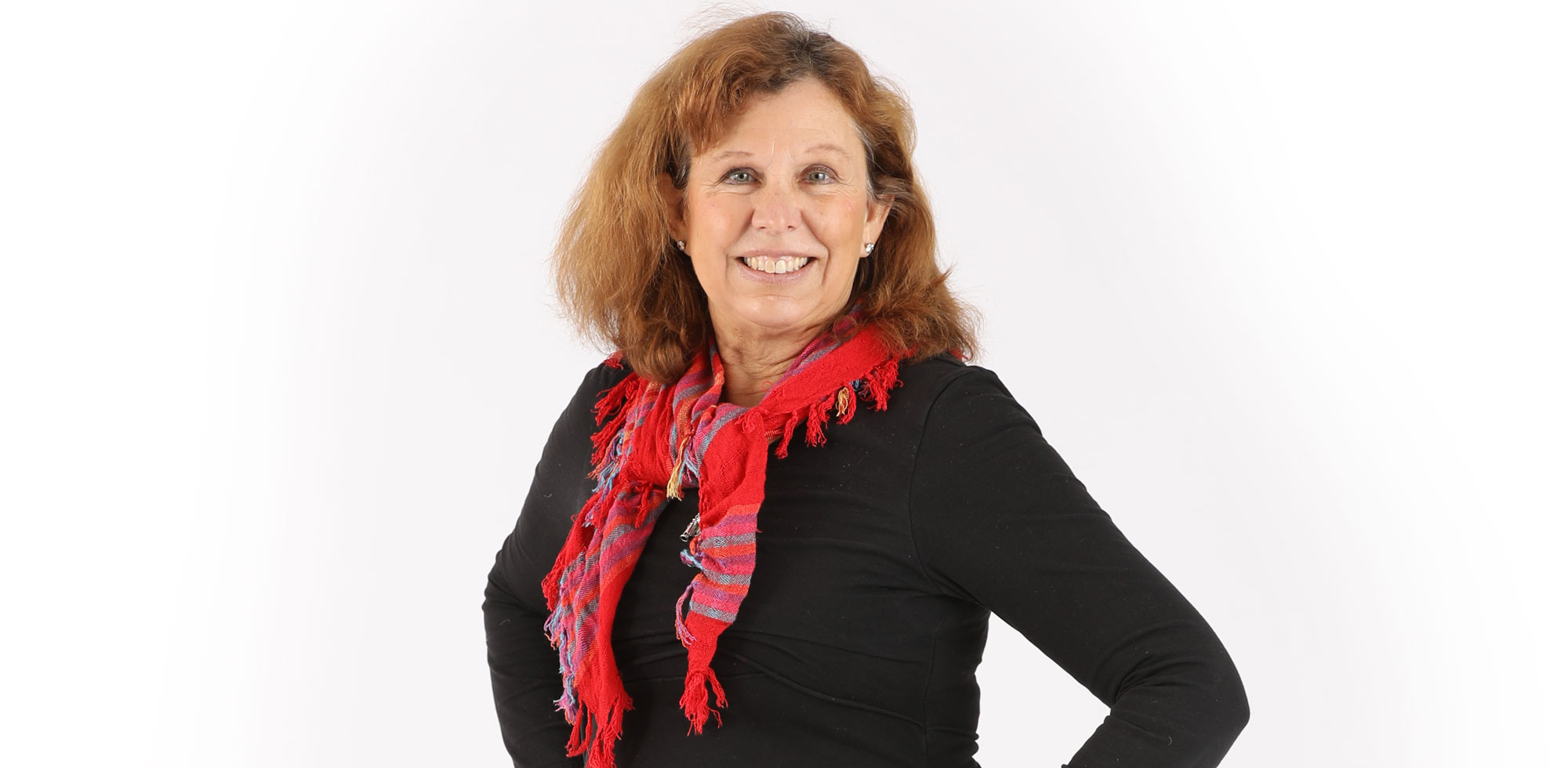
Noreen Thomas feels deeply rooted to the land her in-laws have farmed in Moorhead since 1878. She’s now taking that passion and extending it, stretching into her community, across the open prairie and beyond.
As an Initiators Fellow, she plans to use her agricultural expertise to team up with engineers at a business that produces 40 tons of food waste a year. Together, they hope to reduce the carbon footprint of the business by diverting materials from landfills and creating sustainable, locally sourced fertilizer.
“There is a lot of data that has to be looked at,” she said, but the two-year Initiators Fellowship project gives her the time and resources to dive into it.
Thomas, and her husband, Lee, grow and rotate organic crops such as wheat, rye, barley, buckwheat, edible soybeans, blue corn, oats, flax, and sunflower. But even with the famously rich Red River Valley soil across the region, they and other farmers rely on fertilizer to replenish lost nutrients each year.
Many farmers end up ordering imported fertilizer from countries such as India and China. Prices, though, have doubled, Thomas said, and deliveries are delayed by supply chain slowdowns.
Thomas already has some experience turning local food waste into fertilizer through Moorhead’s post-Halloween pumpkin collection. Residents who participate help divert about 1.5 semi-trailer loads from the landfill. Once composted on the Thomas farm, the discarded pumpkins are reduced to about two pickup truck loads. The compost can be used by community groups or used on the farm.
Traditional open-air composting won’t work for Thomas’s Fellowship project. Because meats and fats are included in the food waste, she and the engineers are working with a more intensive biodigestion process. The new technology uses a sealed system and oxygen. The build-up of energy in the process may be able to generate some electricity and create viable fertilizer for local farmers.
If the project succeeds, the technology and most effective practices could be replicated by other businesses, farms and organizations wanting to reduce food waste while producing viable fertilizer and energy. Having studied food and nutrition, chemistry and microbiology, Thomas looks forward to digging for solutions with the biodigester project.
It also fits with her longtime pursuit of unique ways to connect with the local community and be environmentally responsible.
Past projects have led to growing organic grains for local restaurants, mentoring up-and-coming farmers, inviting hospice patients and struggling teens for restorative visits to their gardens and land, and helping the White Earth Indian Nation grow and preserve sacred heirloom seeds. She’s been creative with guiding their three kids with farm-based businesses, too.
With her kids now grown, she has time for the complex research needed for the biodigester and ways to divert food waste.
“This isn’t just for organic farms,” she said. “It could benefit so many parts of agriculture. We’re all in this together.”
Alex Ostenson, Evansville, West Central Initiative Region
A grocery store and so much more
Ostenson sees self-serve market as key to small-town sustainability
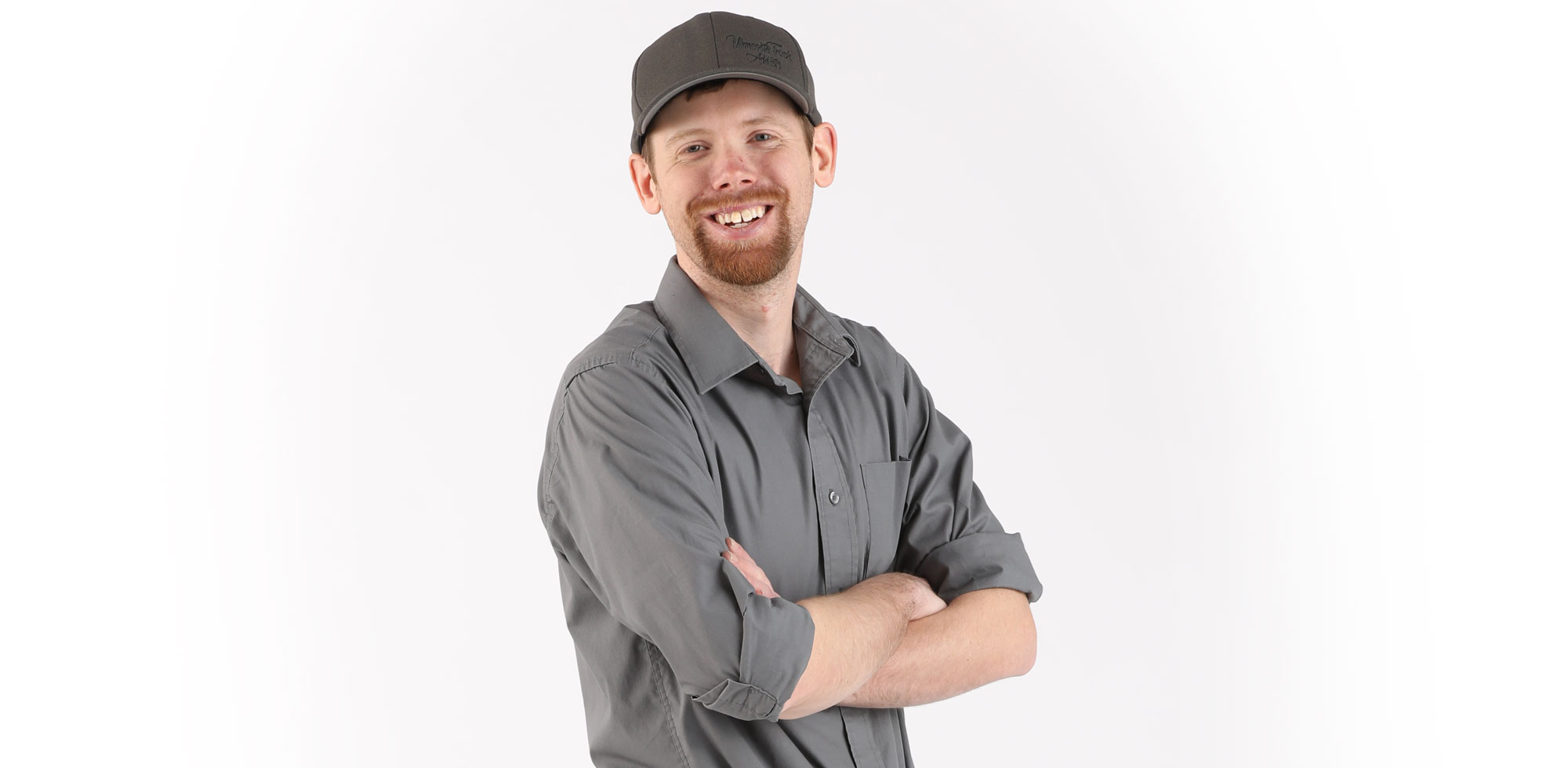
For many small towns, the local grocery store supplies more than morning doughnuts and weeknight dinner ingredients. A market for local growers and producers, a meeting place for neighbors, and a cornerstone for a healthy Main Street, a hard-working grocery store is one of the essential ingredients for a thriving community.
“It’s bad enough to see these stores struggling, as many of them are, but when they actually go out of business, it’s even worse,” said Alex Ostenson, who moved from the Twin Cities to his hometown of Evansville just as the local grocery store was closing its doors, forcing neighbors to drive to the next town or the big box stores in Alexandria for basics. A diesel mechanic by trade but a problem solver by nature, the economic puzzle of making small-town groceries more sustainable is now the focus of Ostenson’s Initiators Fellowship.
Last summer, Ostenson and his wife, Caileen, opened Mainstreet Market in Evansville, a rural grocer built on a brand new business model. From 9-to-5 on Tuesdays, Thursdays and Saturdays, the market operates like a standard grocery store, where the Ostensons run the check-out counter and fill the shelves, and neighbors chat in the aisles. The rest of the week, it’s a self-service food pantry that residents can access anytime with a smartphone app and a $75 annual membership. The 24-hour access is an obvious boon for third-shift workers and others who can’t shop during traditional business hours. During the pandemic, the off-peak hours also proved popular with residents trying to limit contact with others.
“On Thanksgiving, we had people tell us what a lifesaver it was that they could pop in and pick up whatever they forgot for their family dinner that day,” Ostenson said. “And my wife and I didn’t need to be there.”
With high operating costs and profit margins of 1 percent or less, the survival of small-town grocery stores has been a concern in rural areas for years. In fact, a 2019-20 Minnesota Grocery Survey Report from the Regional Sustainable Development Partnerships of the University of Minnesota Extension program found that 88 percent of store owners were concerned about their store’s economic sustainability, while 49 percent were concerned their stores were at risk of going out of business within five years. However, Ostenson believes self-serve stores like his could be part of the solution. He intends to use his Initiators Fellowship to launch a second store and see if the strategy could bring new grocery stores to rural food deserts or help save struggling family stores.
While Ostenson is looking forward to working with a mentor to build his business plan, he’s also eager to share what he’s already learned about the value rural grocery stores can bring to communities. “Gas stations, grocery stores, cafes are some of the key businesses you need in a small town. Once you start to lose them, they cause ripple effects. How long before another business leaves? Communities this size really want to sustain themselves, and this could be the way to do it.”
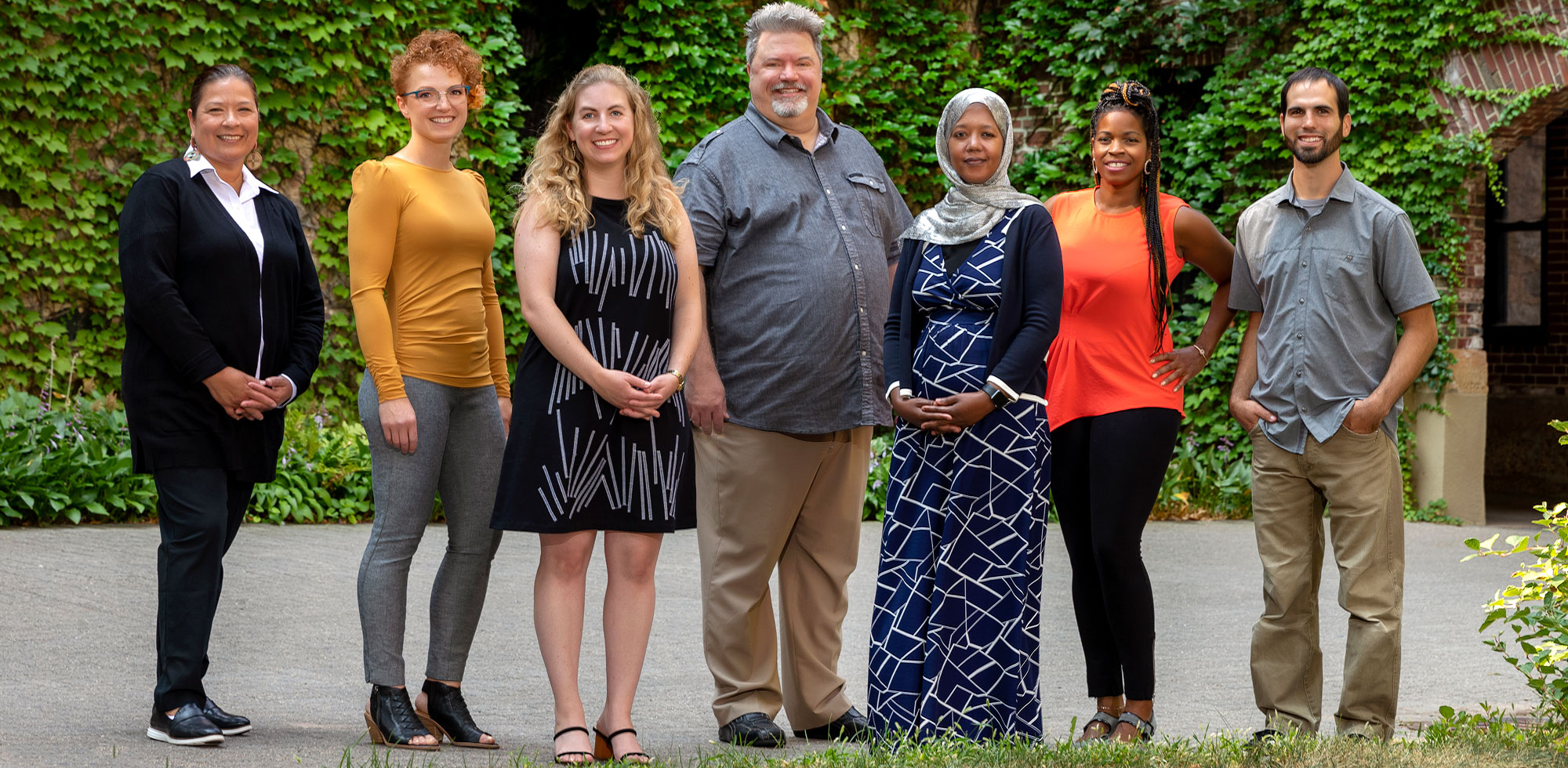
CHANGE MAKERS
2020-2021 Initiators Fellows are making their mark
Nearly half of all small businesses fail within five years. But judging from the results the Initiative Foundation has seen among its first two Initiators Fellowship cohorts, investing in social entrepreneurs with good ideas for growing their businesses and bringing communities together has been worth the risk.
For instance, hydroponic garden entrepreneur Jon Friesner had sold just a couple of his GroShed farms before starting his fellowship in 2020. Two years later, his company has made more than $500,000 in sales and sold 32 GroSheds.
Other 2020-2021 Fellows are seeing similar success:
- Finding a way to turn a family dairy into a tourism destination was Alise Sjostrom’s goal for Redhead Creamery, which more than doubled gross revenues since the start of her fellowship, offering 1,200 paid farm tours over the past two years despite the pandemic.
- Since the launch of Kivu Immigration Law just a few months into her fellowship, attorney Erin Schutte Wadzinski has offered more than 500 consultations and is ready to hire another lawyer to help. Schutte Wadzinski also has purchased a new building in downtown Worthington with lending support from Southwest Initiative Foundation.
- Hamdia Mohamed’s Victory Plus Sober Housing program has more than doubled its capacity as she looks for a new residence for expanding transitional housing options in St. Cloud.
- Anne O’Keefe Jackson of the Lower Sioux Indian Reservation in Morton is proudly pursuing her goal to increase the availability of traditional art supplies for native artists, including a mobile truck for traveling to events.
- While managing against the effects of the pandemic, Rachel Stone of Moorhead is charging ahead with P’s & Q’s Etiquette to help young people express their hopes and dreams for their future.
- And Marc Van Herr is expanding his mental health project, The Beautiful Mind Project, to include the Mindology Mental Wellness Center in St. Cloud. Mindology is a project that will expand mental health care through nutrition, massage, meditation and yoga on top of traditional therapy.
“Our recent Fellows show that investing in individuals can have a big impact,” says Chris Fastner, program manager of the Initiators Fellowship. “If we keep investing in people who are champions for their communities, even if there are failures and setbacks and changes in plans, we believe we’re still going to see a positive social impact for Greater Minnesota.”
Major funding for the Initiators Fellowship comes from a host of regional and statewide friends who believe in linking good people and good causes through diverse economic development opportunities. The Initiative Foundation and its Minnesota Initiative Foundation partners would like to thank Granite Partners, a founding and ongoing funder, the Bush Foundation and Sourcewell for their vision and belief in elevating promising entrepreneurs and their socially impactful ventures.
ALUMNI: 11
NEW COHORT: 7
MIF PARNTERS: 4
ASSETS: $5.3M (as of 12/31/21)